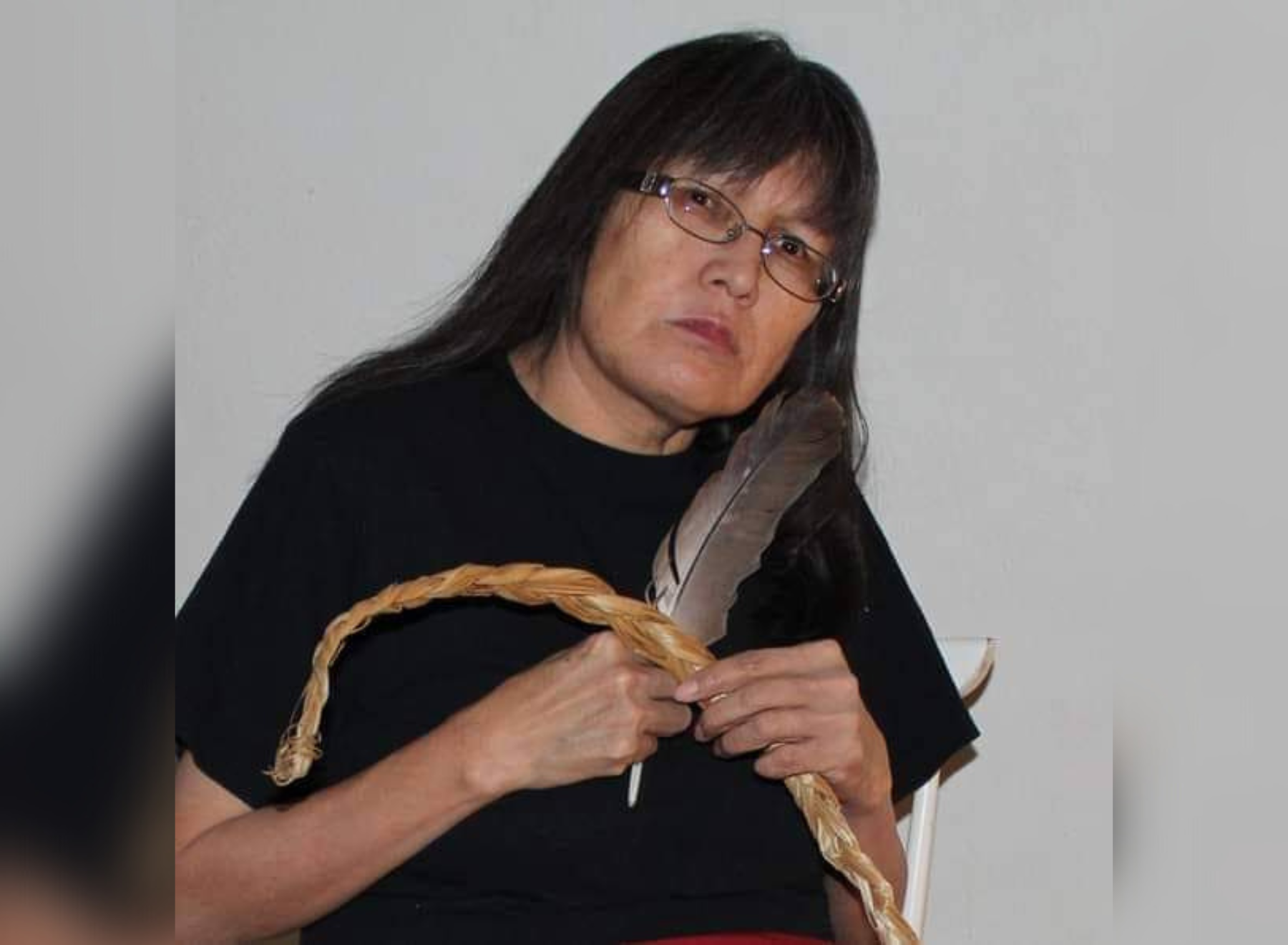The sky was full of different shades of blue on the day of the Pope’s apology. Even a tinge of grey off in the distance. Like many residential school survivors’ reactions to the Pope’s visit to Canada, I must admit mine bordered in the blue-grey area. Anger and skepticism. I was a residential school survivor who attended an Indian school in the early ‘70s. But it was run by the Presbyterian Church instead of the Catholic Church. My mother and aunties attended a Catholic-run Indian school in the early 1900s.
Still the doctrine of forced religion was similar and the damage to children was the same. It left broken lives behind. Little ones in unmarked graves.
I asked various Indigenous residential school survivors their opinion of the Pope’s visit and apology. One grassroots member mentioned he wasn’t going to watch any news stories of the trip. He was angry at what the Church had done to the indigenous people. The grassroots member considered himself a warrior of an Indigenous group and was concerned that he would be arrested on site at the event.
Geraldine Shingoose received an invitation and was going to make the trip to see the Pope. She was a respected elder in Winnipeg. She had attended the Muscowequan Indian Residential School from 1962-1971. Shingoose was a strong voice for the children who never made it home. She wanted to be there for them and her other family members who never got to share their stories. Shingoose wanted the church to know she was a residential school warrior and survived the genocide.
I was asked by several people if I wanted to travel to see the Pope, but I didn’t attend a Catholic school as a child. I felt a quiet level of anger towards the Catholic Church for what it has done to my mother and other survivors. The lack of proper financial compensation towards the survivors and families. The discovery of unmarked graves across Canada of children who didn’t come home. My anger was baggage that I didn’t want to carry on the trip. So I refused to travel to see the Pope and to hear the apology in person.
The day of the apology by the Pope arrived, but I didn’t want to see or hear it live on any news source. I was being badly triggered and was in tears most of the day. I needed and wanted time to view it on my personal time. Where I could pause it to absorb the words. I read the text first and was having a hard time understanding the big words. I was puzzled by that since I was usually good at reading material. Then I realized I was viewing the written apology through the eyes of a child. My Shadow Child. The Shadow Child who attended residential school.
More on Broadview:
- Ojibwe translator for Pope visit on what Catholic Church needs to do next
- Tseshaht First Nation leads search for unmarked graves at residential school site run by United Church
- Carmen Lansdowne elected as United Church moderator
I read the words of the apology with anger. There was no mention by the Pope of the sexual abuse that happened to survivors in residential schools. No mention of day school survivors. The words justice, healing and reconciliation rang hollow in my ears as I listened to the Pope.
I saw the word “sorry” a couple of times in the apology. I am sorry. My acceptance of the Pope’s words may have to start from there. Take the Pope’s words piece by piece. Put aside the words that anger me. Take what I can from the apology to heal myself.
Like that grassroots member, I am angry at what the Church did to the Indigenous people. There is a part of me that shares Geraldine Shingoose’s viewpoint where I wanted to be there for the little ones and family members that didn’t live to see this day.
Residential school survivors all have different opinions about the apology. So much like the different shades of blue skies on the historic day.
***
Vivian Ketchum is a writer and member of the Wauzhushk Onigum Nation, living in Winnipeg.















I don’t accept papal infallibility and don’t believe the Pope personally had anything to do with the abuses. If a genuine attempt were to be made for apology, I would expect the heads of the Anglican, Presbyterian, and United churches on the platform along with the Pope. Unfortunately, Canada has been much friendlier to the Roman Catholic Church for many decades than to other denominations. The principle of separation of church and state was broken; the result is history, and very sad.
Those who suffered from the Catholic residential schools sent a delegation to the Pope asking for an apology.
He came here and apologized. Personally that’s more than I thought he would do.
Now that he has done so it’s not enough for some and more than enough for others. If you wanted more from the Church or the Pope why didn’t the delegation ask for such?
My own opinion, I really don’t think he cares one way or another, he lives 6700km away (from Ottawa) and likely thinks this is Canada’s problem not his. But I’d like to think he thought it was in the best interest of the church to come.
I too hate some apologies because I’ve been hurt, but we fail to realize as Christians we nailed a perfectly innocent man to a cross and He forgave us.